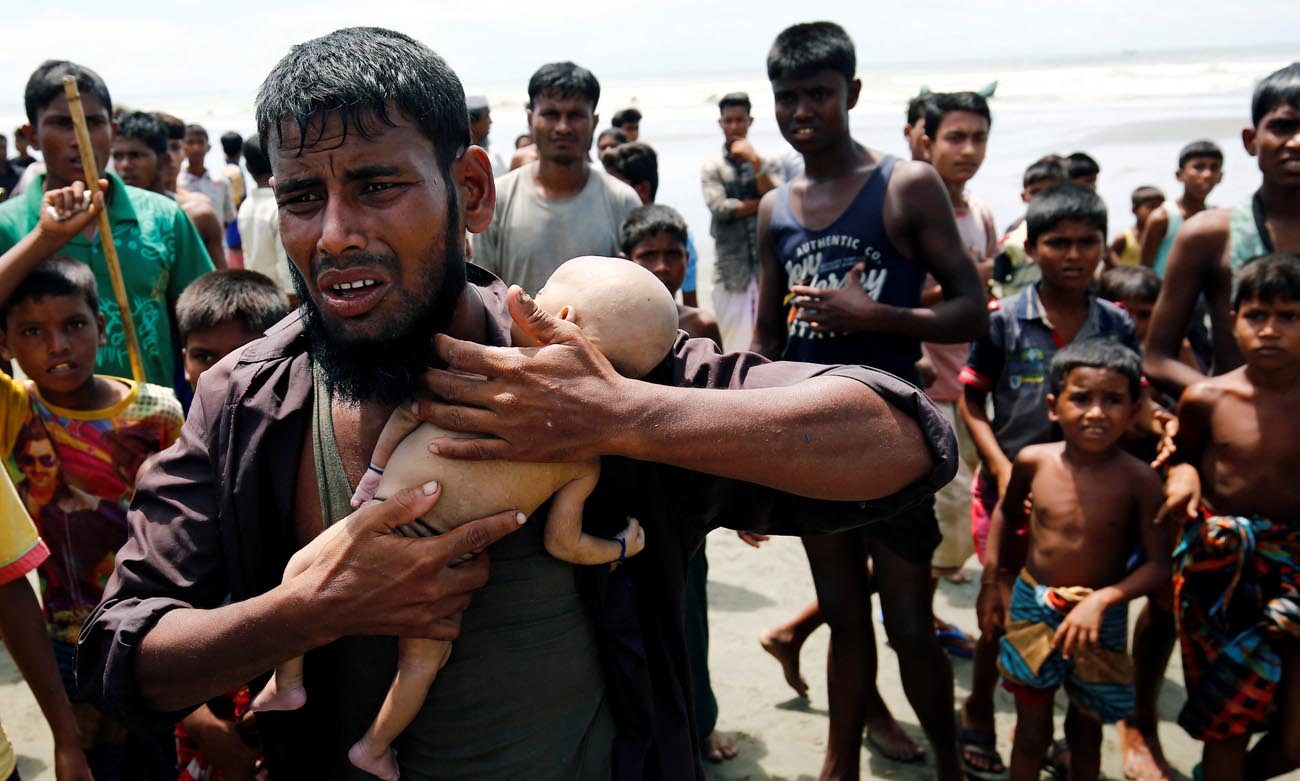SITTWE, Myanmar (CNS) — The U.N.’s World Food Program, which provides regular food aid to 120,000 Rohingya Muslims displaced and living in camps in Myanmar, was working against the clock to deliver basic survival rations to up to 50,000 people.
Ucanews.com reported the rations were three weeks overdue because of disruption of aid activities following government accusations that aid agencies were supporting insurgents. Since Aug. 25, local contractors refused to carry food for aid in conflict-torn Rakhine state. Local contractors, who are ethnic Rakhine, are concerned about retaliation by Buddhist Rakhine hardliners following government accusations that World Food Program energy biscuits were found in Rohingya militant camps in northern Rakhine.
This has also affected the provision of primary health care to internally displaced persons’ camps near Sittwe and elsewhere in the state.
[hotblock]
Rohingya from 10 camps, cordoned off by police guards near Sittwe, say some camps received food rations in August, but most of the camps did not.
The World Food Program has regularly provided rice, beans and oil every month, and local contractors carry food by trucks and send them to the camps.
“I don’t know whether we will get aid in September, but it will be very difficult for our daily survival, as we totally rely on donor-provided food aid,” said Roshida, a 25-year-old Rohingya mother of three from Maw Sonywa camp near Sittwe.
About 120,000 Rohingya have been relying on aid from the U.N. and international nongovernmental agencies since 2012, when religious violence erupted between Rohingya and ethnic Rakhine in Sittwe and surrounding areas, leaving more than 200 people dead.
Pierre Peron, a spokesman for the U.N. Office for the Coordination of Humanitarian Affairs, said because of the disruption of activities in central Rakhine state, many people are currently not receiving their normal food assistance. He said primary health care services have been severely affected as doctors and medical staff are absent from clinics.
Peron added that a safe and enabling environment for all humanitarian staff and contractors should be ensured so they can continue their essential work to meet the needs of all communities.
“Without regular access to aid and with severe restrictions on the freedom of movement of thousands of people, any disruption in humanitarian aid has a very real human impact,” Peron told ucanews.com.
Zaw Zaw Naing, who is working as a community health worker in one camp, told ucanews.com that “the clinic has been closed as doctors sent by the government-run hospital don’t show up, and my job is also halted.”
[hotblock2]
Meanwhile, two children who suffered from pneumonia and two elderly people who suffered from diabetes have died in the past two weeks in Thetkaepyin IDP camp. Dosmin, a 24-year-old woman, said their five-month-old daughter died from pneumonia on Aug. 28 due to threadbare health services available in the camps.
“I brought my child to a nearby clinic, but it was not an improvement because they lacked emergency equipment,” Dosmin told ucanews.com.
On Aug. 27, Pope Francis appealed for help for “our Rohingya brothers and sisters,” and added, “Let us ask the Lord to save them, and to raise up men and women of goodwill to help them, that they may be given full rights.”
The following day, the Vatican announced the pope would visit Myanmar Nov. 27-30 before traveling on to Bangladesh.
PREVIOUS: London cardinal calls Tube incident ‘another cowardly attack’
NEXT: Guatemalan bishops condemn congress’ attempt at imposing impunity



Share this story